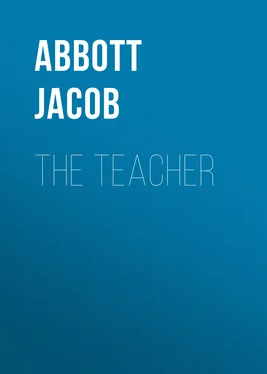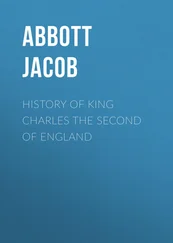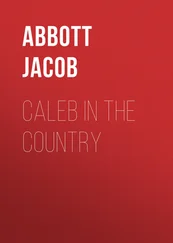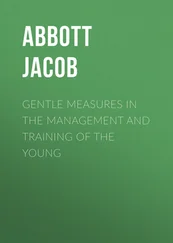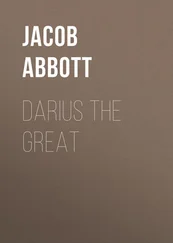Jacob Abbott - The Teacher
Здесь есть возможность читать онлайн «Jacob Abbott - The Teacher» — ознакомительный отрывок электронной книги совершенно бесплатно, а после прочтения отрывка купить полную версию. В некоторых случаях можно слушать аудио, скачать через торрент в формате fb2 и присутствует краткое содержание. Жанр: foreign_edu, pedagogy_book, на английском языке. Описание произведения, (предисловие) а так же отзывы посетителей доступны на портале библиотеки ЛибКат.
- Название:The Teacher
- Автор:
- Жанр:
- Год:неизвестен
- ISBN:нет данных
- Рейтинг книги:5 / 5. Голосов: 1
-
Избранное:Добавить в избранное
- Отзывы:
-
Ваша оценка:
- 100
- 1
- 2
- 3
- 4
- 5
The Teacher: краткое содержание, описание и аннотация
Предлагаем к чтению аннотацию, описание, краткое содержание или предисловие (зависит от того, что написал сам автор книги «The Teacher»). Если вы не нашли необходимую информацию о книге — напишите в комментариях, мы постараемся отыскать её.
The Teacher — читать онлайн ознакомительный отрывок
Ниже представлен текст книги, разбитый по страницам. Система сохранения места последней прочитанной страницы, позволяет с удобством читать онлайн бесплатно книгу «The Teacher», без необходимости каждый раз заново искать на чём Вы остановились. Поставьте закладку, и сможете в любой момент перейти на страницу, на которой закончили чтение.
Интервал:
Закладка:
It will be seen by reference to the foregoing plan, that I have marked the time for the recesses, by the letter R. at the top. Immediately after them, both in the forenoon and in the afternoon, twenty minutes are left, marked G., the initial standing for General exercise. They are intended to denote periods during which all the scholars are in their seats with their work laid aside, ready to attend to what the teacher has to bring before the whole. There are so many occasions, on which it is necessary to address the whole school, that it is very desirable to appropriate a particular time for it. In most of the best schools, I believe this plan is adopted. I will mention some of the subjects, which would come up at such a time.
1. There are some studies, which can be advantageously attended to by the whole school together; such as Punctuation, and, to some extent, Spelling.
2. Cases of discipline, which it is necessary to bring before the whole school, ought to come up at a regularly appointed time. By attending to them here, there will be a greater importance attached to them. Whatever the teacher does, will seem to be more deliberate, and, in fact, will be more deliberate.
3. General remarks, bringing up classes of faults which prevail; also general directions, which may at any time be needed: and in fact any business relating to the general arrangements of the school.
4. Familiar lectures from the teacher, on various subjects,—very familiar in their form, and perhaps accompanied by questions addressed to the whole. The design of such lectures should be to extend the general knowledge of the pupils in regard to those subjects on which they will need information in their progress through life. In regard to each of these particulars I shall speak more particularly hereafter, in the chapters to which they respectively belong. My only object, here, is to show, in the general arrangements of the school, how a place is to be found for them. My practice has been, to have two periods, of short duration, each day, appropriated to these objects. The first to the business of the school , and the second to such studies or lectures as could be most profitably attended to at such a time.
We come now to one of the most important subjects, which present themselves to the teacher's attention, in settling the principles upon which he shall govern his school. I mean the degree of influence which the boys themselves shall have in the management of its affairs. Shall the government of school be a monarchy or a republic ? To this question, after much inquiry and many experiments, I answer, a monarchy; an absolute, unlimited monarchy; the teacher possessing exclusive power, as far as the pupils are concerned, though strictly responsible to the committee, or to the trustees, under whom he holds his office.
While, however, it is thus distinctly understood that the power of the teacher is supreme, that all the power rests in him, and that he alone is responsible for its exercise, there ought, to be a very free and continual delegation of power to the pupils. As much business as is possible, should be committed to them. They should be interested as much as possible in the affairs of the school, and led to take an active part in carrying them forward; though they should, all the time, distinctly understand, that it is only delegated power which they exercise, and that the teacher can, at any time, revoke what he has granted, and alter or annul at pleasure, any of their decisions. By this plan, we have the responsibility resting where it ought to rest, and yet the boys are trained to business, and led to take an active interest in the welfare of the school. Trust is reposed in them, which may be greater or less, as they are able to bear. All the good effects of reposing trust and confidence, and committing the management of important business to the pupils will be secured, without the dangers which would result from the entire surrender of the management of the institution into their hands.
There have been, in several cases, experiments made with reference to ascertaining how far a government, strictly republican, would be admissible in a school. A very fair experiment of this kind was made at the Gardiner Lyceum, in Maine. At the time of its establishment, nothing was said of the mode of government which it was intended to adopt. For some time, the attention of the Instructers was occupied in arranging the course of study, and attending to the other concerns of the Institution, and in the infant state of the Lyceum, few cases of discipline occurred, and no regular system of government was necessary.
Before long, however, complaints were made that the students at the Lyceum were guilty of breaking windows in an old building used as a town-house. The Principal called the students together, mentioned the reports, and said that he did not know, and did not wish to know who were the guilty individuals. It was necessary, however, that the thing should be examined, and that restitution should be made; and relying on their faithfulness and ability, he should leave them to manage the business alone. For this purpose, he nominated one of the students as judge, some others as jury-men, and appointed the other officers necessary, in the same manner. He told them, that, in order to give them time to make a thorough investigation, they were excused from farther exercises during the day.
The Principal then left them, and they entered on the trial. The result was, that they discovered the guilty individuals, ascertained the amount of mischief done by each, and sent to the selectmen a message, by which they agreed to pay a sum equal to three times the value of the injury sustained.
The students were soon after informed that this mode of bringing offenders to justice would, hereafter, be always pursued, and arrangements were made for organizing a regular republican government , among the young men. By this government, all laws which related to the internal police of the Institution, were to be made, all officers were appointed, and all criminal cases were to be tried. The students finding the part of a judge too difficult for them to sustain, one of the Professors was appointed to hold that office, and, for similar reasons, another of the Professors was made President of the Legislative assembly. The Principal was the Executive, with power to pardon , but not to sentence , or even accuse .
Some time after this, a student was indicted for profane swearing; he was tried, convicted, and punished. After this he evinced a strong hostility to the government. He made great exertions to bring it into contempt, and when the next trial came on, he endeavored to persuade the witnesses that giving evidence was dishonorable, and he so far succeeded, that the defendant was acquitted for want of evidence, when it was generally understood that there was proof of his guilt, which would have been satisfactory, if it could have been brought forward. For some time after this, the prospect was rather unfavorable, though many of the students themselves opposed with great earnestness these efforts, and were much alarmed lest they should lose their free government, through the perverseness of one of their number. The attorney general, at this juncture, conceived the idea of indicting the individual alluded to, for an attempt to overturn the government. He obtained the approbation of the Principal, and the Grand Jury found a bill. The Court, as the case was so important, invited some of the Trustees of the Lyceum who were in town, to attend the trial. The parent of the defendant was also informed of the circumstances and requested to be present, and he accordingly attended. The prisoner was tried, found guilty, and sentenced, if I mistake not, to an expulsion. At his earnest request, however, to be permitted to remain in the Lyceum, and redeem his character, he was pardoned and restored, and became perfectly exemplary in his conduct and character. After this occurrence, the system went on in successful operation, for some time.
Читать дальшеИнтервал:
Закладка:
Похожие книги на «The Teacher»
Представляем Вашему вниманию похожие книги на «The Teacher» списком для выбора. Мы отобрали схожую по названию и смыслу литературу в надежде предоставить читателям больше вариантов отыскать новые, интересные, ещё непрочитанные произведения.
Обсуждение, отзывы о книге «The Teacher» и просто собственные мнения читателей. Оставьте ваши комментарии, напишите, что Вы думаете о произведении, его смысле или главных героях. Укажите что конкретно понравилось, а что нет, и почему Вы так считаете.
